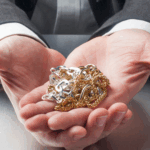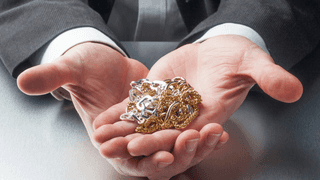Estate Planning Benefits of a Self-Directed Roth IRA
Ask the average person on the street about estate planning, and they’ll probably tell you it’s all about wills and trusts. And sure, that’s partially true. But your retirement accounts can play an important role, too, especially if you have a Self-Directed Roth IRA. Because of its unique tax treatment and investment flexibility, Roth IRAs can be immeasurably important to the way you plan your estate.
The appeal of a Roth IRA? It starts with its structure. You contribute after-tax dollars, which means your withdrawals in retirement are generally tax-free. But that’s not the only benefit. With good, solid planning, your beneficiaries can also receive distributions tax-free. The result? A meaningful difference in how much of your hard-earned savings actually stays in the family.
Why a Self-Directed Roth IRA Works for Estate Planning
Invest in a Self-Directed Roth IRA, and you’ve got more freedom. It’s that simple. You can invest in the valid retirement assets you choose. That kind of flexibility lets you build a portfolio on your own terms.
When it comes to estate planning, the Roth structure offers two big benefits. First, unlike Traditional IRAs, Roth IRAs don’t require you to take required minimum distributions (RMDs) during your lifetime. You can keep the account growing without having to take money out! It’s more important than that sounds.
Second, your heirs can inherit the account and, in many cases, take distributions tax-free, depending on current IRS rules.
Building a Long-Term Legacy
Because a Self-Directed Roth IRA can hold alternative assets, you’re not limited to stocks and bonds as you build a legacy of investments. If you own rental properties in your Roth, for example, the income and appreciation those properties generate can accumulate tax-free for years. By the time your heirs inherit the account? They could be stepping into a mix of assets that continues to produce income without any immediate tax consequences. Not too shabby.
It’s also a way to leave assets that align with your values or expertise. Maybe you want to pass down ownership in a private business you believe in, or hold precious metals as a long-term hedge against inflation. The self-directed model allows you to choose investments that reflect your personal vision for the wealth you leave behind.
Keeping Your Plan Compliant and Clear
While the advantages are significant, it’s essential to follow IRS rules. Your Self-Directed Roth IRA can’t hold investments involving yourself, certain family members, or entities you control. All transactions have to be made in the IRA’s name, and your custodian will help ensure they’re handled properly.
You’ll also want to coordinate your Roth IRA strategy with your overall estate plan. Make sure your beneficiary designations are up to date and match the intentions laid out in your will or trust. This helps avoid confusion and ensures a smooth transfer when the time comes.
A Strategic Gift to the Next Generation
A Self-Directed Roth IRA isn’t just about your own retirement, even though that’s a big part of it. It’s also about setting up a lasting advantage for the people you care about most. The ability to grow investments tax-free, avoid RMDs during your lifetime, and pass assets to heirs without income tax can make it a cornerstone of an estate plan.
If you’re ready to explore how a Self-Directed Roth IRA could enhance your legacy, TurnKey IRA can help you put the right structure in place. Call us today at 844-8876-IRA (472) for a free consultation. Download our free guide or visit us online at www.turnkeyira.com to learn more about creating a retirement account that benefits both you and your heirs for years to come.











